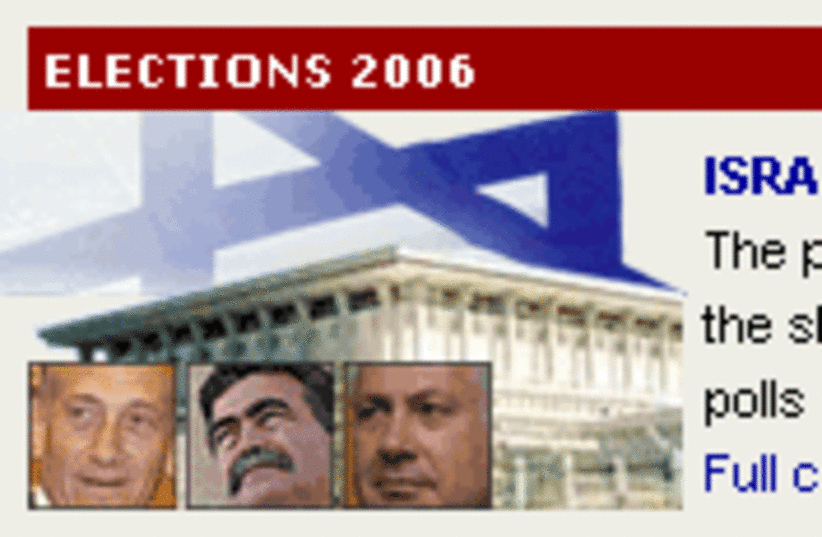Throughout his campaign, Labor chairman Amir Peretz was in almost daily contact with Shas leader Eli Yishai, and aides to Peretz have said that the two formed a close friendship over their shared interest in a social democratic agenda for the Knesset. MK Yuli Tamir, a close associate of Peretz, also conducted secret talks with Shas MKs only two days before the elections, said one Labor official.
"There are many terms of agreement between the two parties," said MK Isaac Herzog, No. 2 on the Labor list, who was seen Wednesday night whispering and joking with Yishai during a television interview.
Gil, the dark horse of the elections, might well join such a coalition because its main issue, better pensions for retirees, was also a mainstay of Peretz's campaign, said one party official.
While an internal fight over portfolios would threaten a social bloc, Labor officials said that the parties were already making strides in negotiations over the ministries.
"There is nothing official yet, but let's just say that there have been major points of agreement," said one senior Labor official.
At the party's Tel Aviv headquarters, however, there was little consensus on what Labor's basic demands would be.
Proposed portfolio demands consisted of variations of the "big five," the Finance, Education, Foreign Affairs, Defense and Justice ministries. Labor officials seemed confident they would receive at least two of them, with some MKs saying three might be possible.
One party veteran said it would depend on whether Peretz chose to pursue several "biggies" or demand a large number of "smaller" ministries that focused on social welfare, such as Interior or Social Affairs.
For many, the biggest question was what Peretz would demand for himself.
While several aides said that he would demand the Industry and Trade portfolio, others said he might be eager to serve as the next defense minister to silence election criticism that his security credentials were not strong enough to serve as prime minister.
Possible candidates for other positions include Herzog, who has long been vying for the position of foreign minister, but who might also find himself as justice minister due to his past career as a lawyer.
Tamir, a former college professor, has been widely touted as the next education minister, although Olmert has promised the position to Prof. Uriel Reichman.
Other candidates for ministers or deputy ministers include Ami Ayalon, MK Ophir Paz-Pines, MK Binyamin Ben-Eliezer, Avishay Braverman and MK Matan Vilna'i.
"Everything is still up in the air, talk is everywhere," said faction spokeswoman Yifat Zohar. "We don't even know if it will be Peretz himself who chooses the list."
According to party rules, Peretz can present a list of recommendations to the Labor central committee, which then decides whether or not it will adopt them. To avoid upsetting candidates, Peretz might also choose to not compile a list and instead let the committee decide on its own, said several aides.
On Thursday, Peretz was scheduled to hold his first official meeting to draw up a list of guidelines for coalition talks. It would be the start to a very long road ahead, said several Labor MKs, who seemed to agree only that none of the decisions would be easy.

